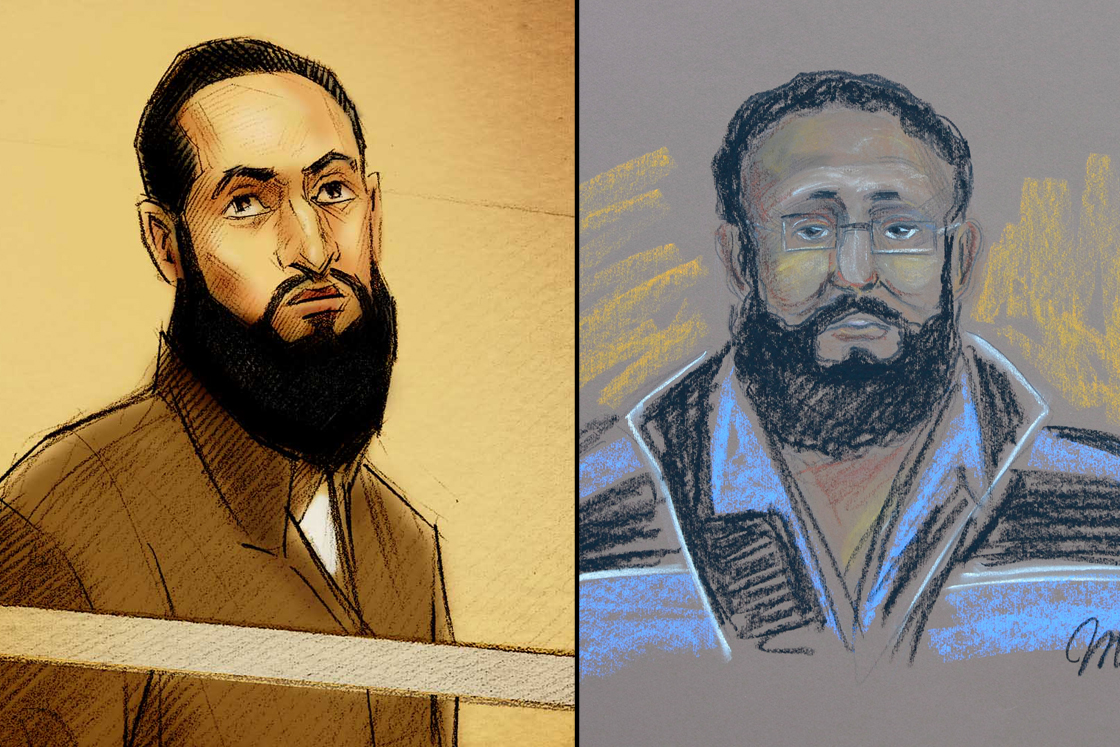Journalists have a right to see search warrants in the VIA Rail terror plot, a judge has ruled, coming to almost the opposite conclusion regarding wiretaps as a judge making the same call in the Project Traveller case.

Warrants should by default be public once they’ve been executed, wiretaps don’t necessarily need to stay private and the onus is on the Crown and defence lawyers to keep these documents secret, Justice Bruce Durno ruled in a Sept. 20 decision made public late Monday afternoon.
Durno was “not persuaded” disclosing some intercepted communication would break a law that “permits the private communications to be disclosed in search warrant applications that are presumptively open to the public,” he wrote.
This runs in sharp contrast to a decision from Justice Phillip Downes, who decided the wiretaps in search warrants relating to the Project Traveller raids this past spring should stay under wraps because asking a judge for a search warrant wasn’t a formal enough criminal proceeding to make it public.
And Durno’s ruling will be a boon to media lawyers trying to overturn that Project Traveller decision.
Raed Jaser and Chiheb Esseghaier were arrested in April on charges of terrorism, accused of plotting to attack a VIA Rail train out of Toronto.
RCMP at the time said there was no immediate danger to the public. The timing of the arrests came under scrutiny, coming as it did just as Parliament was debating an anti-terror bill.
Lawyers representing multiple media organizations, Global News included, argued the information behind these search warrants ought to be made public because of the high-profile nature of the case and levels of public interest in the basis of these terror charges. The warrants, they argued, should at least provided to journalists who can fight for their broader publication.
Jaser’s lawyers John Norris and Brydie Bethell argued releasing the information would taint a jury .
(“In Mr. Norris’ words,” Durno wrote, “to release the information would be to release a virus and hope no one in the jury panel caught it.”
Durno ultimately agreed with media lawyer Peter Jacobsen’s argument that jurors “have a healthy immune system.”)
Jaser’s lawyers also argued journalists’ push for publication was “premature” because it’s so early in the case: The suspects still hadn’t had bail hearings when the applications were made.
That doesn’t matter, Durno decided.
“I am not persuaded that waiting for full disclosure will assist in the issues to be determined,” he wrote. “Waiting for counsel to finalize the contentious issue can be a lengthy and, in some cases, a futile exercise.”
Moreover, Durno noted, publication bans that routinely cover bail hearings have “never been interpreted as covering the information obtained outside a bail hearing,” including the search warrants sought in this case.
This is also good news for journalists, as it means information obtained through other sources is fair game, even if it’s given at a bail hearing covered by publication ban.
“For example,” Durno wrote, “if the police conducted a press conference at the time of arrests and outlined the allegations, the nature of some of the evidence and that same evidence were given at the bail hearing, would the media be precluded from reporting what had been said at the press conference?”
No, he concluded – they wouldn’t.
Esseghaier, who’s representing himself, had no problem with publishing the documents as long as it didn’t include video of his apartment.
Jaser’s lawyer Norris declined to comment Monday.
But it’s still unclear when the information behind these search warrants will be made public: The Crown has argued it needs more time to resolve issues surrounding redacting portions that would identify “innocent” third parties or compromise the ongoing investigation.
But even once a time frame is laid out, only a small portion of these documents will be made public any time soon: Everything that falls under wiretap law will be available to media lawyers who can decide what they want to fight to make public. Much of the rest of the information will be available for journalists but not for dissemination.




Comments